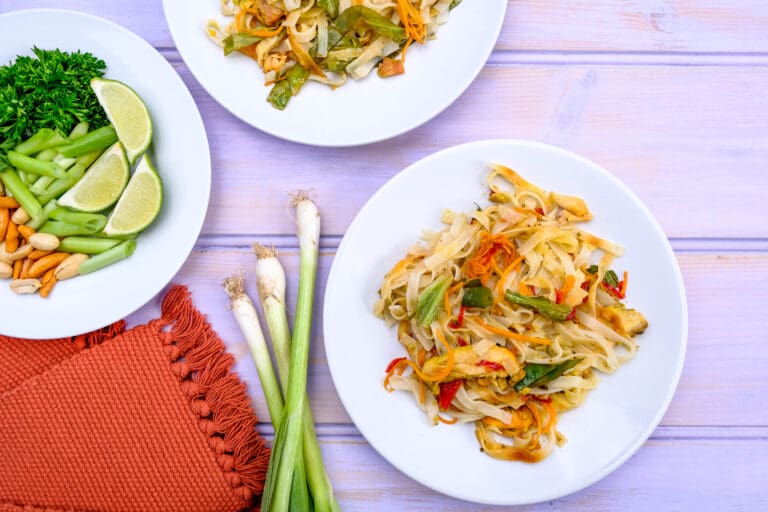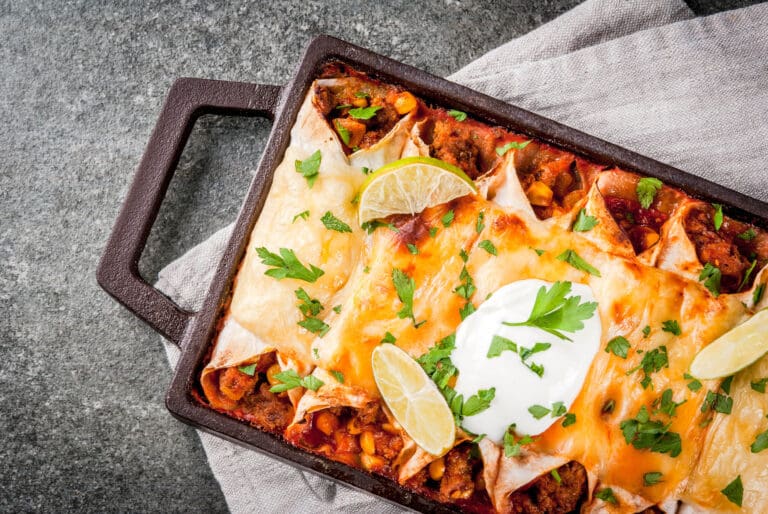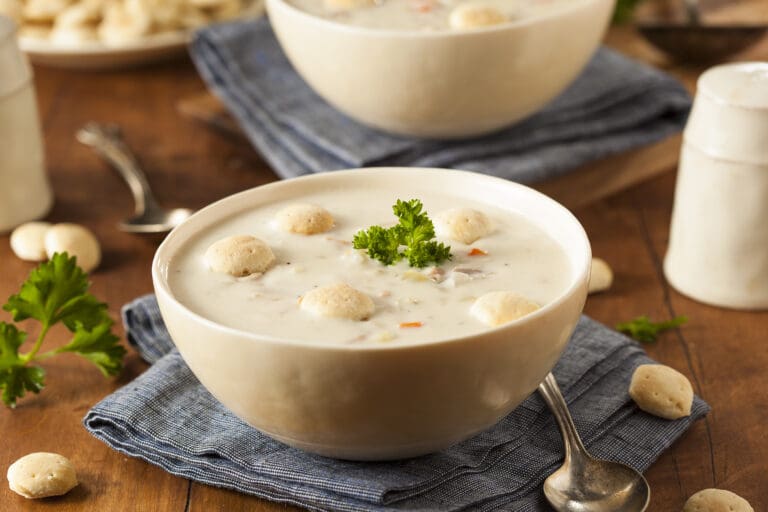Using chicken thighs helps reduce the likelihood of overcooking the protein. The secret to this recipe involves resting the chicken thighs overnight in a lightly acidic & spicy buttermilk marinade.

Crispy Fried Chicken
Using chicken thighs helps reduce the likelihood of overcooking the protein. The secret to this recipe involves resting the chicken thighs overnight in a lightly acidic & spicy buttermilk marinade.
Ingredients
For the Chicken & Marinade:
- 8 chicken thighs
- 2 cups buttermilk
- 1 Tbsp kosher salt
- 1 Tbsp freshly-ground black pepper
- 2 tsp ground cayenne pepper
For the Flour Dredge:
- 2 cups all-purpose flour
- 1 Tbsp dried minced onion
- 1 tsp dried granulated onion powder
- 1 Tbsp dried minced garlic
- 1 tsp garlic powder
- 1 Tbsp kosher salt
- 1 tsp freshly-ground black pepper
- 1 tsp ground cayenne pepper
- ½ cup additional buttermilk, for use during breading process
- 4 cups vegetable oil, for frying
Instructions
- To prepare the buttermilk marinade, whisk together the buttermilk, salt, black pepper, and cayenne pepper.
- Combine marinade with the chicken thighs and place contents in a freezer-safe Zip-lock bag.
- Allow the chicken thighs to marinate in the buttermilk mixture in the refrigerator for at least 4 hours, and preferably overnight.
- To prepare the flour dredge, combine the flour with the spices and salt and mix everything together well.
- Drain the marinade from the chicken thighs.
- Dredge the chicken thighs in the flour dredge mixture you made earlier and place breaded chicken thighs in a bowl.
- Pour the additional ½ cup of buttermilk onto the breaded chicken and toss chicken in the bowl to evenly distribute the liquid.
- Bread the chicken thighs a second time in the flour dredge.
- *Dredging the thighs here a second time allows more of the dredge to stick to the chicken.
- Set the breaded chicken thighs aside on a rack to rest at room temperature for thirty minutes.
- While the breaded chicken thighs are resting, heat 1 inch of vegetable oil in a Dutch oven to 340F.
- *Note here that 340F is the initial starting temperature of the oil, before the chicken is added to it.
- Adding the chicken will lower the oil temperature, which should be maintained at a lower temperature of roughly 315-325F during the frying process.
- Fry the chicken in batches at 315-325F, turning once or twice, until the chicken is cooked through and reaches an internal temperature of 160-165F.
- *This can take roughly 15-20 minutes per batch.
- When the chicken is cooked, allow to rest on paper towels on a wire rack on a sheet tray for three minutes prior to serving.
- Serve hot!
Notes
The oil temperature and time required to cook the chicken fully and turn the exterior golden-brown will vary based on the thighs’ thickness and overall size.
Thicker thighs will require a lower oil cooking temperature and longer frying time relative to the smaller and skinnier thighs. If your thighs are particularly small and thin, consider increasing the oil frying temperature and cooking them for less time.
If you are working with really large chicken thighs, you can gently flatten the thickest sections of the meat under plastic wrap to make the thickness more consistent and ensure more even cooking.
Allowing the thighs to rest at room temperature for 30 minutes after they are breaded the second time will help warm the insides of the chicken pieces so that they cook more evenly when fried.
Thicker thighs will require a lower oil cooking temperature and longer frying time relative to the smaller and skinnier thighs. If your thighs are particularly small and thin, consider increasing the oil frying temperature and cooking them for less time.
If you are working with really large chicken thighs, you can gently flatten the thickest sections of the meat under plastic wrap to make the thickness more consistent and ensure more even cooking.
Allowing the thighs to rest at room temperature for 30 minutes after they are breaded the second time will help warm the insides of the chicken pieces so that they cook more evenly when fried.





